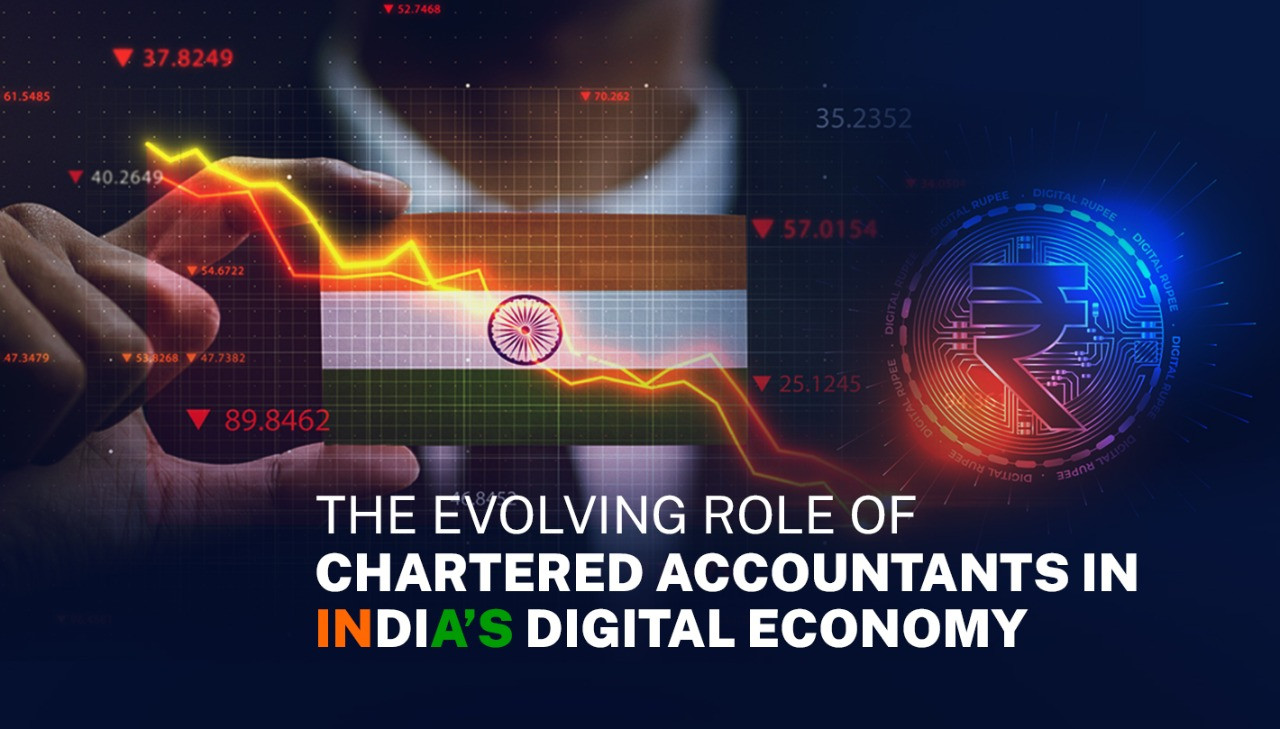


Over the past decade, India’s economy has undergone a massive digital transformation. From e-invoicing and digital taxation to fintech innovations and paperless compliance, the shift has been swift and profound. In this dynamic environment, the role of Chartered Accountants (CAs) has evolved significantly, moving far beyond traditional number-crunching and statutory compliance.
Today, CAs are not only financial stewards but also strategic contributors to an organisation’s digital resilience and growth. Their expertise now intersects with technology, data, and policy interpretation in ways that are shaping the future of businesses across the country.
From Ledger Books to Cloud Platforms
Gone are the days when accounting meant piles of paper, manual entries, and hand-calculated ledgers. With the advent of cloud-based accounting systems and digital tools, financial data is now available in real-time. This has empowered businesses to make timely decisions, while also raising expectations from financial professionals.
Chartered Accountants are expected to not only interpret numbers but also understand the digital tools that generate them. This includes proficiency in enterprise resource planning (ERP) systems, data analytics software, and AI-powered automation platforms. As a result, technical upskilling has become essential.
Guiding Businesses Through Regulatory Digitisation
India’s regulatory landscape has embraced digitisation at a rapid pace. Whether it’s Goods and Services Tax (GST) e-filing, the Annual Information Statement (AIS), or the revamped income tax portal, compliance is increasingly digital-first.
CAs are at the forefront of helping businesses navigate these changes. Their role includes interpreting new regulations, ensuring timely and accurate submissions, and adapting internal processes to align with digital compliance frameworks. More importantly, they serve as a bridge between policy and practice, ensuring that businesses remain on the right side of the law without disrupting operations.
Strengthening Data Integrity and Governance
With increased reliance on digital platforms comes the challenge of data integrity and security. CAs are well-positioned to support organisations in building robust internal controls and audit trails. As custodians of financial data, their role has expanded to include oversight of data accuracy, traceability, and compliance with information security norms.
In many organisations, internal audit functions are now integrated with IT audits—further emphasising the need for multidisciplinary knowledge. The Institute of Chartered Accountants of India (ICAI) has also recognised this shift by introducing specialised certifications and modules related to IT and forensic audits.
Contributing to Strategic Business Decisions
The availability of real-time data allows businesses to shift from reactive to proactive decision-making. CAs, with their deep understanding of financial frameworks, are uniquely positioned to interpret data trends and provide actionable insights.
In areas such as cost optimisation, risk assessment, sustainability, and capital structuring, CAs increasingly play a consultative role. While they remain bound by their professional code of conduct, their analytical inputs contribute meaningfully to shaping strategic decisions.
Supporting the Start-Up and MSME Ecosystem
India’s start-up ecosystem and Micro, Small, and Medium Enterprises (MSMEs) have also benefited from the digital economy. However, these businesses often face challenges in navigating regulatory requirements, maintaining books of accounts, and accessing capital.
CAs are helping such businesses formalise operations, adopt digital accounting tools, and remain compliant. They also provide guidance on financial planning, tax structuring (within legal boundaries), and long-term sustainability—becoming valued partners in their growth journeys.
Embracing Continuous Learning
Perhaps the most important change is the need for continuous learning. The digital economy is dynamic—new regulations, technologies, and business models are emerging frequently.
For CAs, staying updated is not optional. It is a professional imperative.
The ICAI has been instrumental in facilitating this evolution by offering digital transformation courses, knowledge-sharing platforms, and global best practices. CAs who proactively adapt are well-positioned to serve clients and employers in a fast-changing world.
Conclusion
The digital economy has redefined the expectations of Chartered Accountants in India. No longer confined to compliance and reporting, they now play a multifaceted role that includes technology integration, strategic advisory, and data governance.
By blending financial acumen with digital adaptability, CAs continue to be trusted professionals who support the integrity, transparency, and sustainability of the Indian economy. Their evolving role is a testament to the profession’s ability to stay relevant, responsible, and resilient in an era of transformation.